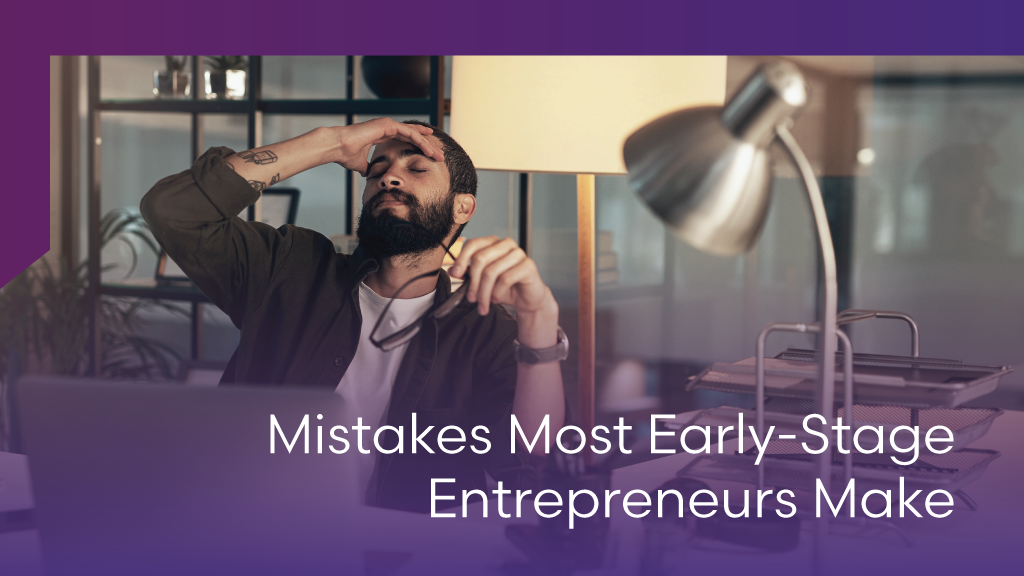
Launching a startup is one of the most exciting and rewarding journeys an entrepreneur can undertake. But it’s also full of landmines, the majority of which explode due to avoidable early mistakes rather than bad ideas. From skipping customer validation to rushing to scale, the first phase of a startup is when the foundation is either built or cracked.
“More startups die from indigestion than starvation.” — Bill Gurley
In this post, we’ll look at five key mistakes early-stage startups often make, and what you can do to avoid them. By learning from these examples, you can build a stronger foundation and improve your chances of long-term success.
Mistake #1: Skipping Market Validation
Many founders fall in love with their idea and start building right away. However, unless you can demonstrate that real people want what you’re offering, you risk wasting time and money on something no one needs. Startups fail when they build around assumptions rather than problems. Even the best-designed product will fail if it does not address a genuine, urgent need.
How to avoid it:
Talk to your target users. Run interviews and surveys before writing a single line of code.
- Build a Minimum Viable Product (MVP). Launch something small to test interest and gather real feedback.
- Measure demand early. Look for pre-orders, signups, or waitlists — not just likes or compliments.
Pro tip: Treat your MVP as a learning tool, not a launch. The goal isn’t to get it perfect — it’s to get it into users’ hands quickly and improve from there.
Mistake #2: Building the Wrong Team
People build startups, and in the early stages, each new hire has a significant impact. Many founders hire too quickly, based on résumés or personal networks, without first determining whether the candidates can thrive in the uncertainty and pace of a startup. Misaligned teams generate friction, not momentum.
How to avoid it:
- Hire for mindset, not just skillset. Look for grit, flexibility, and commitment to the mission.
- Start small and strong. A tight, focused team that works well together will outperform a larger team that lacks direction.
- Set cultural expectations early. Your first hires set the tone for company values and behaviour.
Mistake #3: Scaling Too Quickly
Early traction is both exciting and tempting. Some startups secure funding or generate buzz and then immediately begin hiring, expanding, or introducing new features. However, if the core product isn’t working reliably yet, scaling can quickly lead to burnout, wasted capital, and chaos.
Scaling is not the same as growing because it involves multiplying what is already working. If it doesn’t work, you’re just creating more problems.
How to avoid it:
- Wait until product-market fit is clear. Do users come back? Are they referring others? Do they complain if you take the product away?
- Document and improve internal processes. Don’t add people to broken systems.
- Focus on profitability (or a clear path to it). Growth without margins isn’t sustainable.
Pro tip: If you’re still struggling to retain users, don’t scale. Solve that first.
Mistake#4: Overlooking Sales and Marketing
In the early stages, many startups pour all their energy into building the product, assuming that if it’s good enough, users will naturally find it. But great products don’t sell themselves. Without a plan to reach the right audience, even the best solutions risk going unnoticed.
When marketing and sales are treated as afterthoughts, growth slows down. Opportunities for feedback, traction, and brand positioning are missed. Worse, by the time the team tries to catch up, competitors may have already claimed the spotlight.
How to avoid it:
• Start marketing while you build. To reach out to early adopters, use social media, newsletters and community engagement.
• Prioritize founder-led sales. Speaking with customers directly provides unparalleled insight into what resonates and what doesn’t.
• Make your value proposition obvious. What problem are you trying to solve? For who? Why now?
Pro tip: Don’t wait for your finished product to sell. Sell the solution. Sell the outcome
Mistake #5: Neglecting Legal and Equity Structure
Legal, equity, and operational issues may not appear to be urgent at first, but they quickly become so. These oversights, which range from unclear founder roles to sloppy cap tables and handshake deals, result in costly and painful problems in the future. The earlier you structure things properly, the easier your life will be as you grow.
How to Avoid It:
- Early on, have a shareholders’ agreement. Outline the roles, responsibilities, equity, and vesting schedules in writing.
- Use the standard vesting clauses. 4-year vesting with a 1-year cliff helps prevent early exits from affecting your cap table.
- Incorporate at the proper time. Don’t put off formalizing your business, especially before raising funds or taking on clients.
- Seek legal advice. Do not try to do everything yourself; instead, find a start-up-friendly law firm and work with them.
Tip: A messy or unclear cap table can be a deal breaker. Keep it clean and transparent from the beginning.





